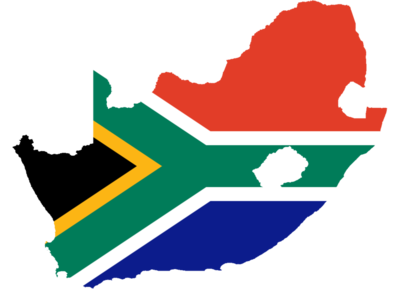From the Open-Publishing Calendar
From the Open-Publishing Newswire
Indybay Feature
April 27 is National Freedom Day - UC California Celebration
City on A Hill Press captured the energy and success that led to April 27, 2018 - National Freedom Day

Over 1,000 demonstrators occupied Hahn Student Services in May 1977, demanding the UC divest from South Africa, which was in the midst of legislated racial discrimination known as apartheid. Racial segregation and white supremacy weren’t new issues, but in 1948 when the predominantly white National Party came to power, segregation became law.
Led by Nelson Mandela, South African anti-apartheid revolutionaries protested and were met with violence from National Party supporters. Thousands died and Mandela was convicted of sabotage and charged with life in prison.
UC Santa Cruz’s Coalition Against Institutional Racism organized the Hahn occupation where over 400 were arrested. This was the first of many protests, including sit-ins, rallies and mock shanty towns, that demanded the UC regents divest holdings in South African Business. In the height of apartheid protests in 1985, the UC had $1.7 in billion invested in firms operating in South Africa.
“The situation is this — the university does not invest in countries, it invests based on financial considerations,” said UC spokesperson at the time, Mike Alva, to City on a Hill Press.
Bart Stratton, spokesperson for the UCSC Student Divestment and Anti-Apartheid Coalition, said “some students at 22 colleges across the country reported they had boycotted classes,” according to the Los Angeles Times. Marches and rallies were reported at 51 other schools.
In 1978, divestment was rejected by the UC regents. The same year, a student referendum for divestment passed 5-to-1 at UC Berkeley, UCLA, UCSC and UC Santa Barbara. A similar statewide petition received 10,000 signatures, yet both were ignored.
Eight years later, the UC regents met at UCSC and voted to divest from South Africa by the end of the decade. The UC became the largest public institution to take a stance on the South African apartheid.
“Today represents a major victory for the movement,” said Pedro Noguera, Associated Students president and an organizer anti-apartheid demonstrators during a protest at UC Berkeley. “This meeting today with [the UC regents] is a clear sign they are feeling the pressure and we are having an effect.”
In 1990, apartheid collapsed under the outside economic pressure from other countries and Mandela was released from prison after 27 years. He became president of South Africa in 1994. His first stop on his U.S. speaking tour was UC Berkeley, where he thanked the students for their support throughout his peoples’ struggle.
Led by Nelson Mandela, South African anti-apartheid revolutionaries protested and were met with violence from National Party supporters. Thousands died and Mandela was convicted of sabotage and charged with life in prison.
UC Santa Cruz’s Coalition Against Institutional Racism organized the Hahn occupation where over 400 were arrested. This was the first of many protests, including sit-ins, rallies and mock shanty towns, that demanded the UC regents divest holdings in South African Business. In the height of apartheid protests in 1985, the UC had $1.7 in billion invested in firms operating in South Africa.
“The situation is this — the university does not invest in countries, it invests based on financial considerations,” said UC spokesperson at the time, Mike Alva, to City on a Hill Press.
Bart Stratton, spokesperson for the UCSC Student Divestment and Anti-Apartheid Coalition, said “some students at 22 colleges across the country reported they had boycotted classes,” according to the Los Angeles Times. Marches and rallies were reported at 51 other schools.
In 1978, divestment was rejected by the UC regents. The same year, a student referendum for divestment passed 5-to-1 at UC Berkeley, UCLA, UCSC and UC Santa Barbara. A similar statewide petition received 10,000 signatures, yet both were ignored.
Eight years later, the UC regents met at UCSC and voted to divest from South Africa by the end of the decade. The UC became the largest public institution to take a stance on the South African apartheid.
“Today represents a major victory for the movement,” said Pedro Noguera, Associated Students president and an organizer anti-apartheid demonstrators during a protest at UC Berkeley. “This meeting today with [the UC regents] is a clear sign they are feeling the pressure and we are having an effect.”
In 1990, apartheid collapsed under the outside economic pressure from other countries and Mandela was released from prison after 27 years. He became president of South Africa in 1994. His first stop on his U.S. speaking tour was UC Berkeley, where he thanked the students for their support throughout his peoples’ struggle.
Add Your Comments
We are 100% volunteer and depend on your participation to sustain our efforts!
Get Involved
If you'd like to help with maintaining or developing the website, contact us.
Publish
Publish your stories and upcoming events on Indybay.
Topics
More
Search Indybay's Archives
Advanced Search
►
▼
IMC Network


